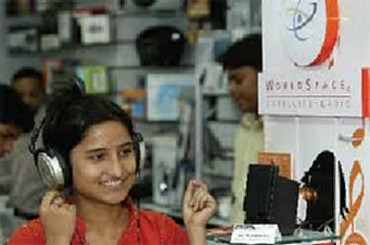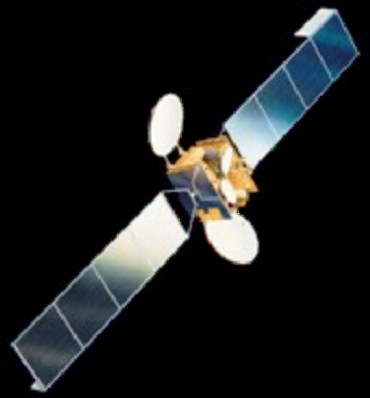 | « Back to article | Print this article |
Worldspace radio gears up for a comeback
All those who mourned the shutdown of Worldspace in December 2009 can rejoice. The satellite radio service, which had gained a small but dedicated audience with its wide-ranging, advertisement-free programming, will be back as early as September, says Seetal R Iyer, head of content and co-founder of Timbre Media.
This is the company founded by the Indian employees of Worldspace after the American company filed for bankruptcy in 2008 and shut operations. The Bangalore-based start-up has now acquired the licence to use the Worldspace brand, says Iyer.
All the old favourites will be revived, says Iyer, including the Indian language stations, Jhankar (Indipop and Bollywood hits), Farishta (old Hindi songs), Spin (international music), the offbeat Mokhsa (wellness and lifetsyle), and the two classical music channels, Gandharva (Hindustani) and Shruti (Carnatic).
Click NEXT to read more...
Worldspace radio gears up for a comeback
Though Worldspace was an American company with its headquarters in Silver Springs, Maryland, the programming content for as many as 15 of the 40 channels in its bouquet was produced out of its three offices in Mumbai, Delhi and Bangalore. India also accounted for 95 per cent of its subscribers.
It is here that Timbre Media's recent sale of a 10 per cent stake to Saregama will help, giving it access to the largest musical archives in the country, across all languages and genres.
In its second coming, however, Worldspace will not be a satellite radio; it will be on DTH, a platform it had been on earlier too, through a tie-up with Airtel's DTH service. This time around, Timbre Media is not looking at an exclusive arrangement with any one DTH operator but is in "concurrent conversations with different players".
Click NEXT to read more...
Worldspace radio gears up for a comeback
Which means that Worldspace will now be into content alone, without getting into distribution and marketing as well - both problem areas in its first run. Timbre Media is exploring other options for distribution such as mobile radio, and streaming radio on the internet as well, says Iyer.
There are plans also to tap markets outside India and increase the number of channels on offer to 20. But all that's for later. Right now, the priority for Timbre Media is to close deals with DTH operators and get Worldspace back on air.
For that is the goal that the 90 or so former employees of Worldspace, primarily those from the programming team and the RJs, have been working towards since March 2010 when they got together to set up Timbre Media.
Click NEXT to read more...
Worldspace radio gears up for a comeback
Their primary objective, says Iyer, was to "continue [Worldspace's] tradition of quality content" and "work towards putting together something similar".
Iyer and four others put in their own money to start the company, turning entrepreneurs overnight, while the others worked on small retainer fees, a fraction of what they earned earlier. "Not all of us have had it smooth many people have had babies or got married," says Iyer.
"Most of us don't have an entrepreneurial mindset. In fact, my friends tell me that I still behave like an employee."
Click NEXT to read more...
Worldspace radio gears up for a comeback
For the past year and a half, the company has been working on a variety of projects to keep the cash coming in with which to pay all the people on board, build its own studio and archives, and revive Worldspace.
Among these were corporate and retail radio projects, supplying content and expertise to FM radio channels abroad, making radio jingles and so on. Needless to say, it hasn't been easy, which is why Iyer says she doesn't want anyone to hold her to the September launch date for Worldspace.
"In the last year we have known that things that look 100 per cent have a way of fizzling out," she says.





